Is a gender recognition certificate crucial or cruel?
- Published
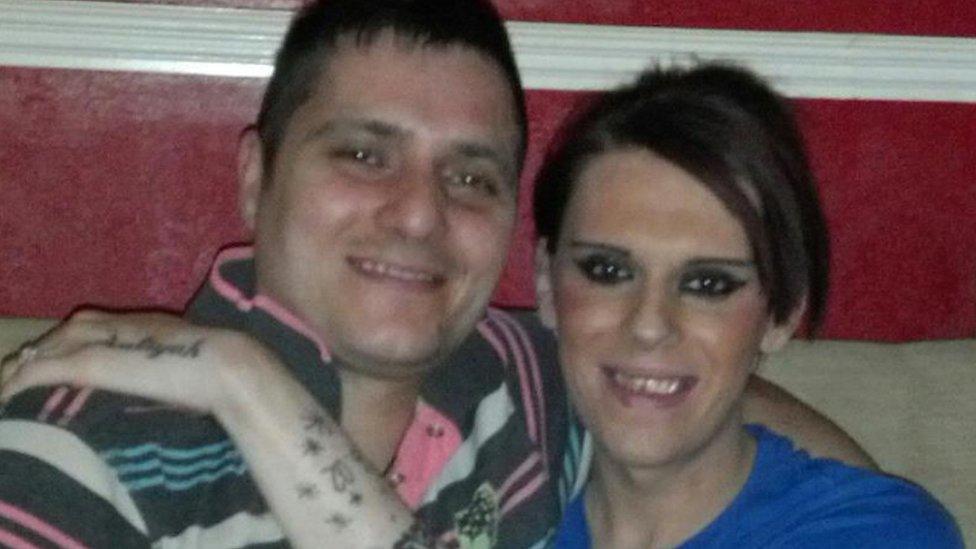
Boyfriend Robert Steele said Vicky Thompson should not have been put into an all-male jail
A transgender woman has died in a men's jail, just weeks after another successfully argued to be moved to an all-female prison. A gender recognition certificate could have prevented either prisoner being in a men's jail but the process of applying for it has been called humiliating. So does the document protect trans rights or infringe them?
Vicky Thompson, 21, was found dead at Armley jail in Leeds just weeks after a campaign saw 26-year-old Tara Hudson moved out of HMP Bristol Prison.
Although both women had identified as female for many years, neither held a gender recognition certificate, external.
The decision on which prison to send a person to is currently based on legal gender determined by a birth certificate or a gender recognition certificate.

Tara Hudson, 26, was sent to a men's prison in Bristol before a campaign saw her moved to a women's jail
According to Luke Anderson, who was born Laura and began transitioning aged 27, the certificate should be scrapped.
The chef from Cheshire won TV reality show Big Brother in 2012 and married wife Jamie-Lee two years later. They are now undergoing IVF and hope to become parents.
He said: "Being trans doesn't define me and I don't need a scrap of paper to say I'm a man.
"My wife and I want to have children. If we are lucky enough to have a child I will be the father because I love and cherish them.
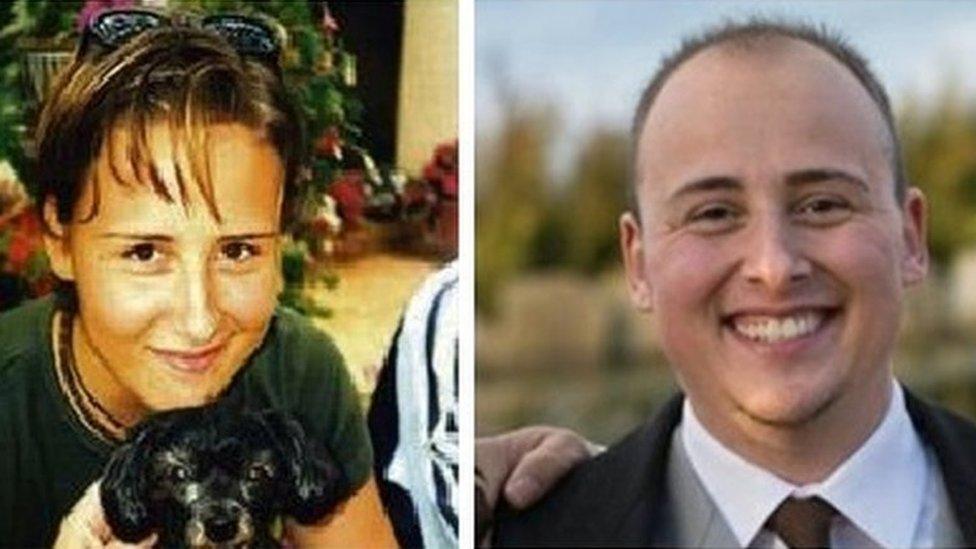
Luke Anderson before and after his transition
"Although my name will be on the birth certificate I don't need that piece of paper to prove I'm the father.
"So why should I and others go begging cap in hand to a panel of judges who don't know us and request that they grant us a gender recognition certificate?
"No-one has the right to tell you who you are.
"In these days of gender fluidity, people should live the lives they wish to lead, without being suppressed by a meaningless scrap of official paper."
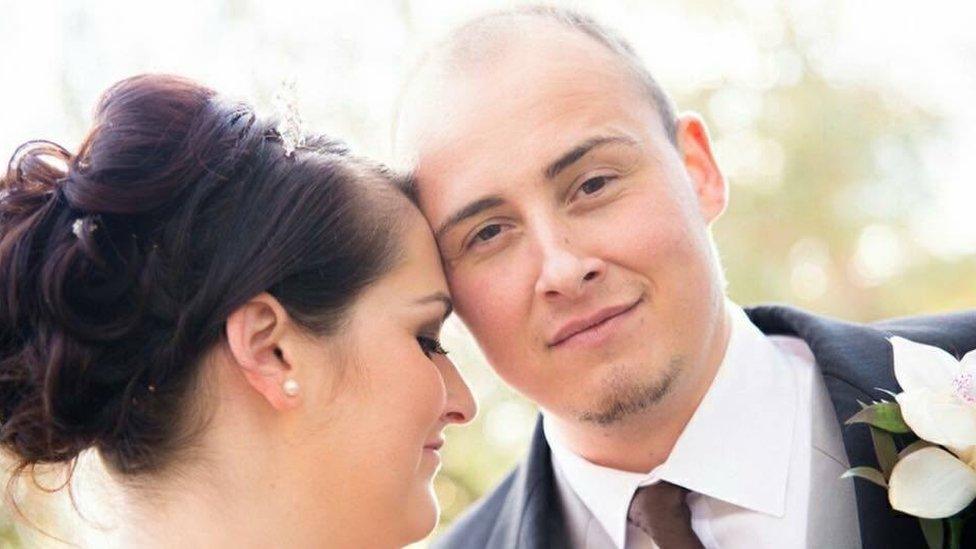
Luke Anderson on his wedding day to Jamie-Lee
Jackie Jessiman, a fellow of the Chartered Institute of Legal Executives who specialises in transgender cases, says the certificate provides all the rights appropriate to a gender - such as the right to retire and receive state benefits at a certain age - and says for that reason the government needs to be informed of a change of gender.
"By obtaining a gender recognition certificate, you are entitled to a new birth certificate, which in many situations is required to be produced," said Ms Jessiman.
Stephanie Booth is a trans woman who is firmly in favour of the certificate, as she believes it "makes life so much easier".
Stephanie was a wealthy businessman and a married father-of-three named Keith before she underwent transgender surgery in 1983.
She does not have a gender recognition certificate because it did not exist at the time - instead she got a new birth certificate.
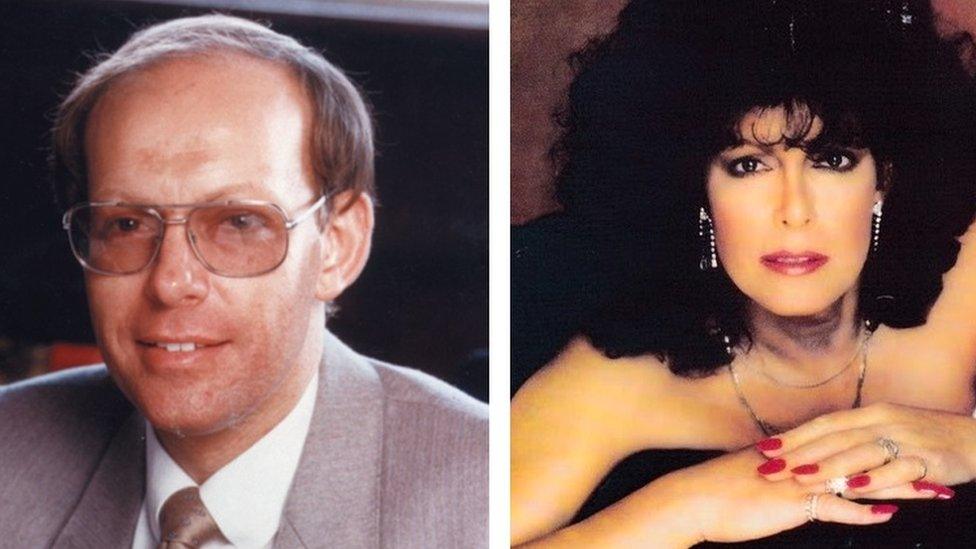
Stephanie Booth before and after her transition from her birth gender Keith Hull
She believes she was the first trans woman in the UK to be jailed, when in 1989 she was sentenced to 12 weeks for a video licensing offence.
"I was sent to Askham Grange women's prison near York in 1989 so Vicky Thompson and Tara Hudson being sent to men's prisons seemed very odd," said Ms Booth.
"Legally I am a woman, but I am proud to identify myself publicly as a trans woman, but there are those that would not wish to do so.
"For those that need to completely hide their past, amending your birth certificate would offer certainty.
"The amended birth certificate makes life so much easier. You are even assigned to a special tax office that handles MI5 operatives but the staff cannot access your details."
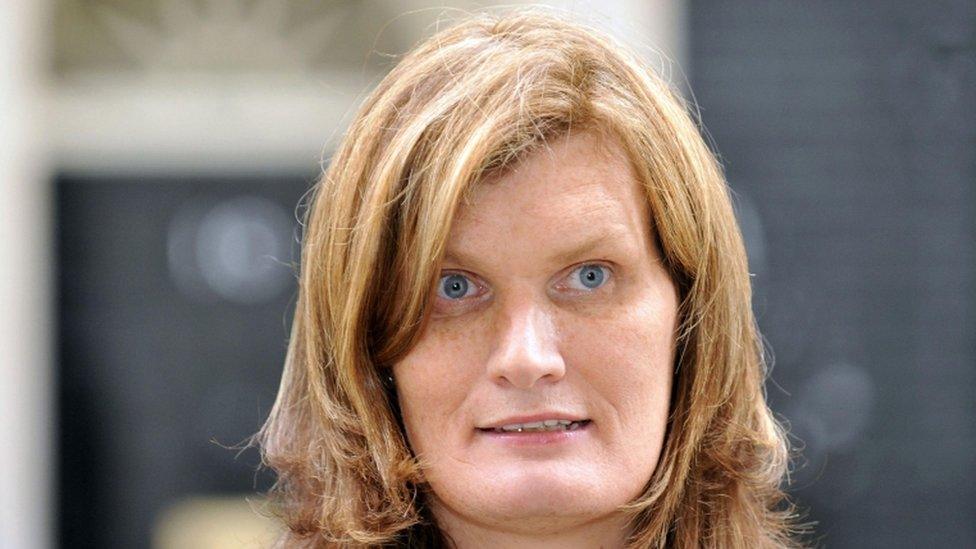
Nikki Sinclaire supports the certificate but thinks the processes for applying for it need streamlining
Tens of thousands of people have signed a petition, external calling for the government to allow people to self-define their gender - as permitted through the Republic of Ireland's Gender Recognition Act, external, passed in July .
But former West Midlands MEP Nikki Sinclaire said she did not think people should be able to self-define their gender.
"I transitioned more than 25 years ago so the law was different, there was no legal definition at all. So when the Gender Recognition Act came in I welcomed it," said Ms Sinclaire.
"Looking at it now I do feel some of the hoops you have to jump through can seem excessive.
"Before my surgery I had to live as a woman for two years and that's what you have to do before you can get a certificate.
"But I've known people who have changed their mind in that two years.
"I've known someone who bypassed that by going abroad for surgery and ended up regretting it.
"The gender recognition certificate is an understanding that someone was born in the wrong body and they have taken steps to match their body with their mind.
"The system of getting a certificate needs to be a little more streamlined but I don't believe you should self define."
The government has announced it is re-examining its policy on transgender prisoners following Vicky Thompson's death.
The certificate was previously debated at the Transgender Equality Inquiry, external in the House of Commons on 28 October.
Jo Churchill, member of the Women and Equalities committee, asked minister Caroline Dinenage: "The process of applying for a gender recognition certificate has been described as protracted, bureaucratic, costly and humiliating. Do you agree?"
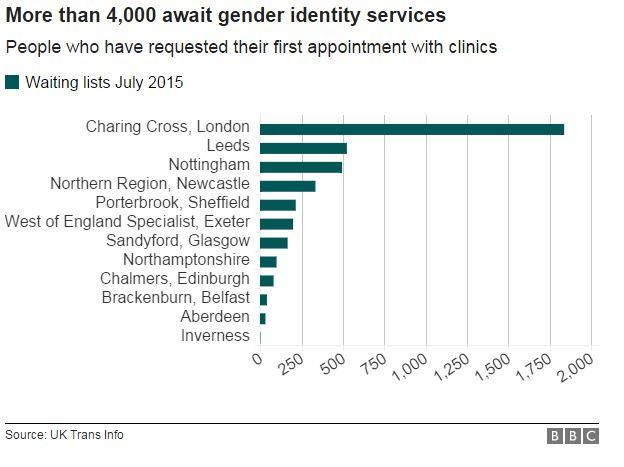
Mrs Dinenage, minister for women, equalities and family justice, said: "We were quite groundbreaking internationally in introducing this form of legislation.
"Since then, we have seen other countries around the world - most recently Ireland - come up with legislation that differs from ours, in the sense that people can self refer, people do not have to wait two years and there are also discussions around ages. These are all really important experiences for us to learn from."
A campaign saw Tara Hudson moved to a female prison within days, but the inquiry heard there were about 100 trans prisoners in the UK whose rights were at risk.
Mrs Dinenage said: "We want to do more on this, which is why there is prison service guidance at the moment, but that is being updated to take into consideration everything we already know and everything we are learning about the trans population in our prisons. That new guidance is in draft form at the moment and will be issued, hopefully, before Christmas."
For Vicky Thompson the new guidance will come too late.
Alex Kaye, from SafeT, which represents transgender people, said he hoped her death would bring about a change in the law.
"Any woman would not be happy to be in a male prison regardless of any gender identity history," he said.
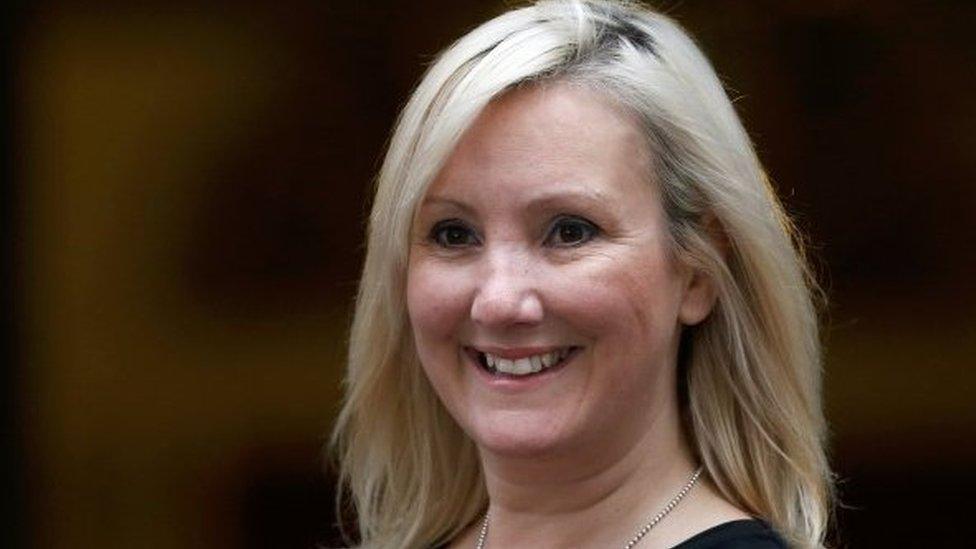
Caroline Dinenage, minister for women, equalities and family justice, says the UK can learn from the experiences of countries that do things differently
Ms Booth said: "Vicky told friends she would commit suicide if she was sent to a men's jail. This to me means that the law handed out a virtual death sentence.
"I was sent to Askham women's prison but had I been sent to a male jail I think I would have probably done the same thing.
"That our justice system in 2015 be so callous is very troubling.
"Today is the Transgender Day Of Remembrance when internationally we remember all trans people who have lost their lives as a result of war, violence and suicide. How ironic."
And Mr Anderson said: "The gender recognition certificate is outdated. We all have a basic human rights, transgender or not.
"Trans people go through rigorous psychiatric scrutiny when beginning their journey to make sure it's the correct path to take, this surely is gender recognition enough.
"To continue ignoring the rights of transgender people by putting them in the opposite sex's prisons is barbaric and very ignorant.
"Recently Vicky Thompson was a victim of this stupidity, she lost her life. Please let this be the end of the law defining your gender... Before we lose more."

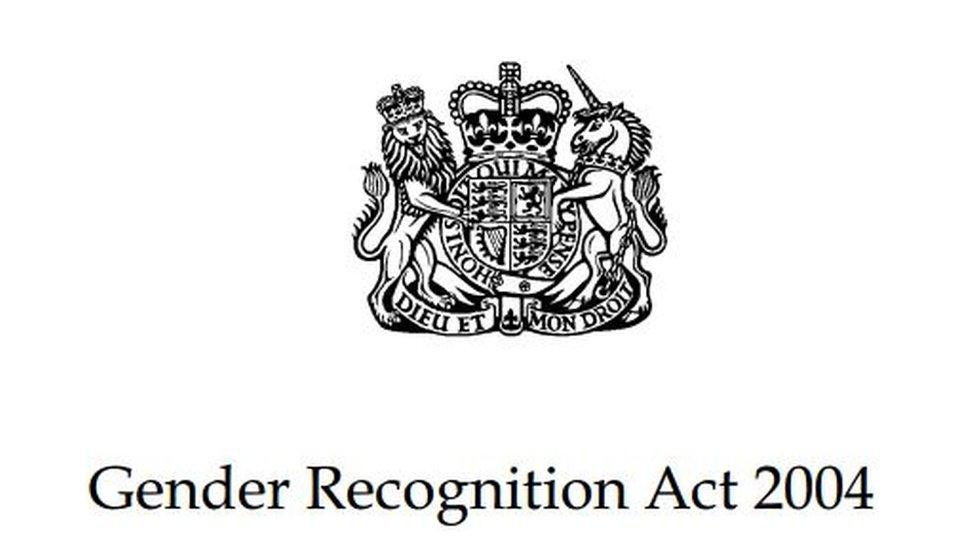
The standard route to apply for a Gender Recognition Certificate
Applicants must:
Be 18 or over
Be diagnosed with gender dysphoria - discomfort with their birth gender
Have lived in their acquired gender in the UK for at least two years
Intend to live in their acquired gender permanently
Pay a £140 fee
Other routes apply to those who are married or in a legal partnership, or who have documents to prove their gender has been legally accepted in some other countries.
The application is assessed by a gender recognition panel which can ask for further proof or information.
If a certificate is granted, the successful applicant can apply for new birth, marriage or civil partnership certificates.
If the certificate is refused it may be possible to appeal to the courts.

- Published19 November 2015

- Published30 October 2015

- Published27 October 2015
